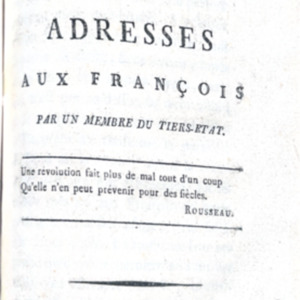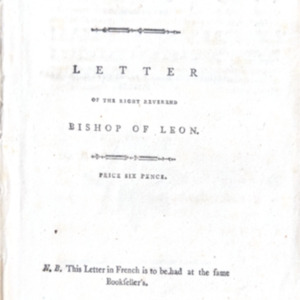In Their Own Words: The French Revolution in Print
A New Republic: The National Convention
The Estates-General was convened in 1789 to address France’s financial crisis but quickly revealed deep political divisions, leading the Third Estate to break away and form the National Assembly. This shift sparked the Revolution and eventually gave rise to the National Convention in 1792, which abolished the monarchy and declared France a republic. The Convention was marked by intense political conflict between factions like the Girondins and Jacobins, leading to radical policies and the Reign of Terror.
The pamphlets in this gallery offer a window into the evolving political consciousness of the Third Estate as they moved from protest to active revolution. Rather than simply reacting to injustice, these texts reveal a growing sense of purpose and unity among those who formed the National Assembly. They articulate emerging visions for a more just and representative form of government, one no longer rooted in hereditary privilege but in the will of the people. Through these documents, we gain insight into how ordinary citizens began to imagine, and demand, a new political order grounded in republican ideals.

Addresses Aux Francois Par un Membre du Tiers-Etat
Published in 1795, Addresses Aux François Par un Membre du Tiers-État offers a thoughtful and impassioned plea to the French people from the perspective of a member of the Third Estate. This pamphlet speaks to the transformative years following the height of the French Revolution, a time of reflection on the successes and failures of the revolutionary process.

Letter of the Right Reverend Bishop of Leon
Published in 1793, during one of the most turbulent years of the French Revolution, this letter by the Right Reverend Bishop of Léon—Jean-François de La Marche, offers a compelling defense of the Catholic Church and a lament for the religious upheaval sweeping France. Addressed to the faithful, and likely intended for a broader European audience, the letter reflects the perspective of a high-ranking cleric in exile, writing in the wake of the Revolution’s radical reorganization of religious life.